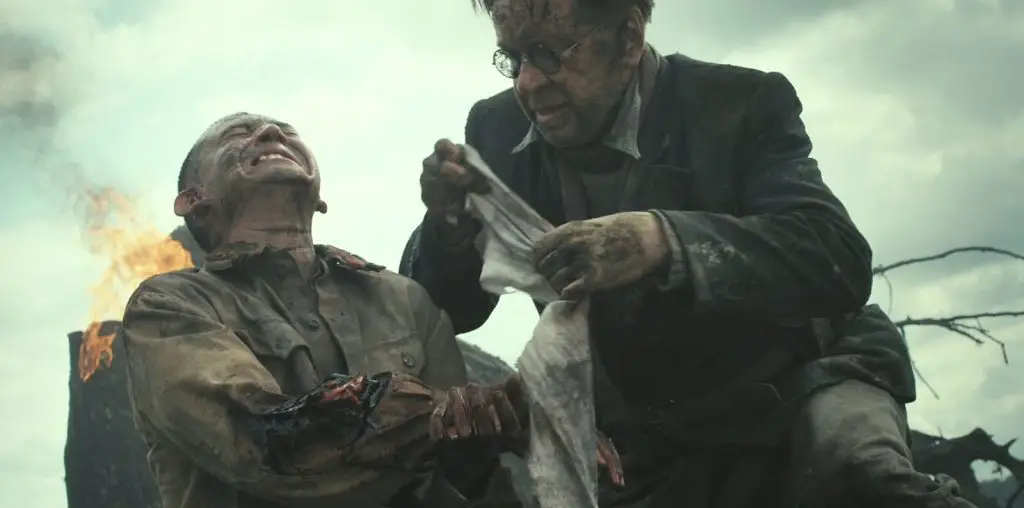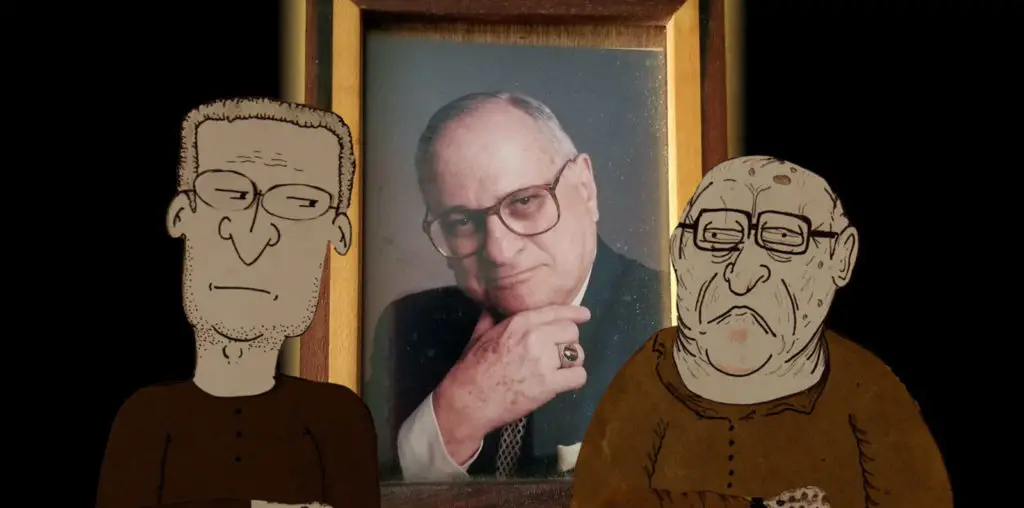
If it weren’t for the hallucinations, London cabbie Chris would consider his life boring. Of course, he doesn’t believe that his constant sightings of a strange, often nude woman, are hallucinations, no matter what his friends and colleagues think. He doesn’t feel overworked or overly stressed; he’s just driving along and there she is at the side of the road, only to vanish when he investigates. Then she begins appearing in his apartment, at his bedside, sometimes accompanied by a bright streaming light and a misshapen figure behind her. Finally, she arrives, full-bodied, at his door, covered in blood from what could be bite wounds. He bathes her, feeds her and dresses her in a red dress befitting a goddess, which is how he’s come to think of her. They have sex, frequently, when she isn’t disappearing. And when the misshapen creature isn’t attaching fleshy, ropey tubes to his body, torturing him mentally and physically. Then things get strange.
Based on a book described in the DVD liner notes as a “Buddhist horror novel”, “White Light” by William Scheinmann, “Mind Flesh” was written and directed by Robert Pratten, best known for the exemplary and moody thriller, “London Voodoo”. Like his first feature, “Mind Flesh” doesn’t spoon-feed the reader, leaving much of what is happening to Chris up to interpretation. Compared by some reviewers to the “body horror” subgenre as defined by David Cronenberg, this film compares favorably to the likes of “Rabid” and “Videodrome” as something is definitely not quite right with Chris internally and it’s manifesting itself externally. He has a twisted history with his alcoholic mother—abuse and incest is implied—and awkward sexual relationships with the other women in his life, not just “The Goddess”. He begins to believe that he is somehow crossing back and forth into another dimension, tortured by the extraterrestrial beings that reside there, and he seeks out a physicist to confirm this, but the scientist is a paranoid himself and answers Chris with hostility. By the end, we’re still not sure if any of this is actually happening—to Chris or to the viewer. Chris is told by the creatures to confront his past or watch as his closest friends are tortured and killed, but since each has their own internal demons, what is reality and what is allegory?
Filled with twisted and sometimes truly nightmarish imagery—one highlight, so to speak, consists of a gruesome shot of the Goddess, her crotch covered with writhing maggots—“Mind Flesh” isn’t an easy movie to get a handle on, nor was it designed to be. This ambiguity is the heart of the movie’s power. Pratten is an intelligent director and believes that his audience is just as intelligent—a belief the more cynical among us might feel to be unfounded, given our current market of remakes and sequels—and he’s crafted a movie that is worth multiple viewings.
Beautifully shot in crisp HD, “Mind Flesh” looks and sounds superior, and the performers without exception do their best to keep their characters grounded in reality as the visuals tumble about them. It’s not going to bat a thousand with viewers who lack patience for the surreal—though running at 75 minutes, you’d have to possess a really short attention span to get bored—so if you want everything laid out for you in a linear fashion, “Mind Flesh” isn’t the movie for you.
The movie can be purchased on a double-disc DVD (filled with commentary, a feature-length “Director’s Diary” and a closer look at the effects work) or viewed on demand at the official website, but one would be well advised to watch it on as big a screen as possible so you can appreciate the design and care that went into the practical effects. And it wouldn’t hurt to revisit “London Voodoo” as well. And, afterwards, possibly, a psychiatrist.


A good review with a different take on the movie to me. Perhaps at a later date I may review this cracking movie as well….